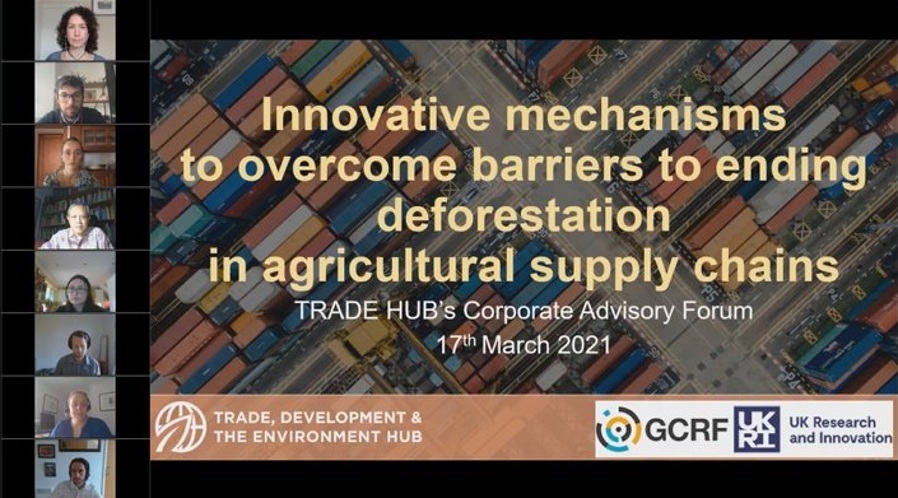17 March 2021
A webinar was held to promote TRADE Hub’s research on mechanisms to help end deforestation in agricultural supply chains and foster further collaboration between the Hub and the private sector. This included participants from a range of commodity traders and banks who were interested in potential solutions to the current barriers to change.
Seven experts presented their research, including TRADE Hub partners from the University of Cambridge, UN Environment Programme World Conservation Monitoring Centre (UNEP-WCMC), University of Reading and CIFOR. This included:
- Research outcomes on the potential of sustainability-linked loans to incentivise forest preservation, particularly in the Brazil-China soy supply chain
- Solutions and opportunities to overcome policy-related barriers to sustainable commodity trade finance from the private sector perspective
- An overview of the existing tools, policies and initiatives for sustainable and deforestation-free soybean production
- Ideas on how blockchain could be used to enhance real-time tracking of transactions to enhance the integrity and sustainability of end-to-end supply chains
- An explanation of how the Trase.Finance tool can be used for better risk management in agricultural sourcing
- How to align anti-deforestation standards and indicators across financial institutions along soft commodity supply chains
- The challenges faced by smallholders and approaches to engage them about forest preservation including through credit access to help them improve farming practices
Sharon Brooks, UNEP-WCMC’s Deputy Head of Business and Biodiversity, highlighted the breadth of research underway within the TRADE Hub that can help define solutions to reduce the deforestation risks in agricultural supply chains. Engagement with corporate and finance sector actors is therefore encouraged to help define research needs and co-design solutions.
A recording of the event including the presentations is available here.
